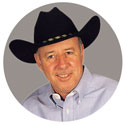Out to Pasture: Why Cattle Feeders Fret

 The right word may be "unease." The Texas Cattle Feeders Association (TCFA) finished their annual convention on Election Day, and it was pretty clear that Barack Obama was going to win. At a TCFA convention, you will find about as many Democrats as vegetarians, although I could tell you of two former TCFA presidents who are big Democrats.
The right word may be "unease." The Texas Cattle Feeders Association (TCFA) finished their annual convention on Election Day, and it was pretty clear that Barack Obama was going to win. At a TCFA convention, you will find about as many Democrats as vegetarians, although I could tell you of two former TCFA presidents who are big Democrats.
But it wasn't just partisan politics that led to the group's unease. These folks make their living feeding corn to cattle, and this meeting came just days after a Time magazine interview in which the President-to-be seemed to endorse Michael Pollan's view that feeding corn to cattle is evil.
This, of course, was on top of a convention program that included Randy Blach of CattleFax warning about the overcapacity in the cattle packing and feeding industries—and mentioning that the economic pressures would probably continue to haunt beef demand for the foreseeable future.
And then there was the Federal Reserve president from Dallas warning that he didn't "see much chance of any economic growth in 2009."
So there was plenty of reason for unease. But for many, the biggest source was the Pollan article and Obama's apparent acceptance of the ideas behind it.
Pollan's letter to Obama. The basic tenor of the Pollan piece, an open letter to the next President that was published in the New York Times Magazine, was that current farm policy is based on the profligate use of energy. Pollan argues this industry not only wastes energy, it also contributes to greenhouse gas production and provides Americans with so much cheap food they get fat and lazy—which just adds to health care costs.
Let's admit up front that agriculture policy in the U.S. is a mighty big ship and the farm lobby has spent a long time at the tiller. In years past, there has always been enough bipartisan pressure from congressmen to keep the keel headed in roughly the same direction.
It's probably premature to suggest that the new President and Congress will be able to shift it much. But they might be able to make changes that will reduce the impact of cattle feeding.
There is a righteous wind in the face of some of these ideas, but you have to realize that there are a lot of people who hate the idea of cattle, or any animal, production. Your most successful defense has always been that drastic change would increase food prices and that economic pain would be inflicted by any upheaval in agricultural production patterns.
But it was not really clear during the campaign where Obama stood on such matters. He obviously believes we need drastic change in our energy use. He is looking for ways to reduce health care costs—and there is plenty of evidence that our diets are not good for us.
See, we've always been able to argue that doing stuff like that would make beef cost more and push producers out of business. It's been a pretty successful strategy, but in Pollan's view that would be a good outcome.
Once you adjust to thinking it would be a good thing for food to cost more, Pollan's formulas make sense. The argument that the poor will have to eat beans while the wealthy eat steak can be dealt with by taxing the latter and subsidizing the former.
If you haven't read the Pollan piece, you should. It has radical but rational thought behind it, and apparently our new President agrees.
I'm not sure how bad it would be for all producers. Pollan's view has a place for local, grass-fed beef. He just wants to do away with feedlots.
And that is cause for unease among the guys who own and run them.







